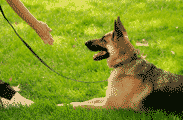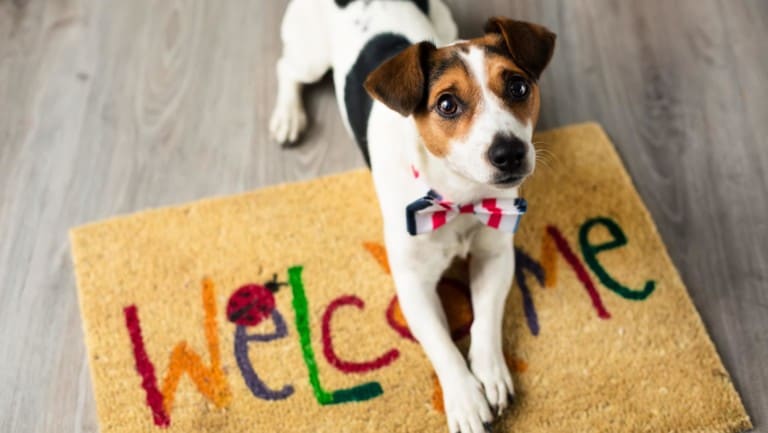 Do you tell your dog to “come,” or do you use the command “here?” Does Rowdy understand the difference between “down” and “off?” What’s your opinion on pinch collars? And really, aren’t you tired of having an overexcited Astro pull you down the street?
Do you tell your dog to “come,” or do you use the command “here?” Does Rowdy understand the difference between “down” and “off?” What’s your opinion on pinch collars? And really, aren’t you tired of having an overexcited Astro pull you down the street?
Methods for training your puppy or older dog are as diverse as the people who teach them, but one thing's for sure: a well mannered dog is every trainer's goal.
Trainers who work with animal shelters and rehabilitation organizations have seen it all, and most really know their stuff. Education is a big part of the mission for most shelters and rescue groups, and many offer socialization classes and basic obedience training for pups and older dogs. Some of the larger organizations,such as the San Francisco SPCA, go even farther, offering instruction in nose work, agility, rally, and dealing with shy or reactive canines. Classes are held weekly and open to all comers, not just those who have adopted from the shelter.
If you've recently brought a dog into your home, or if your existing paw-shaker could use some discouragement when it comes to wild-child ways, check into the programs offered through your local SPCA organization, breed rescue organization or shelter.
The San Francisco SPCA, Berkeley East Bay Humane Society, Peninsula Humane Society & SPCA, Sacramento SPCA, SPCA for Monterey County, East Bay SPCA, Marin Humane Society, and Sonoma Humane Society all offer training classes.
If you participate, remember: Training classes are about training the trainer. It's really you, the human, who's being taught. Repetition and daily practice are essential for wagging tails and positive results. An experienced trainer can show you what to do, but only you can make it stick.
Interested in pouring energy into competitive events? Dogtrekker has plenty of other tips on where to get started.






